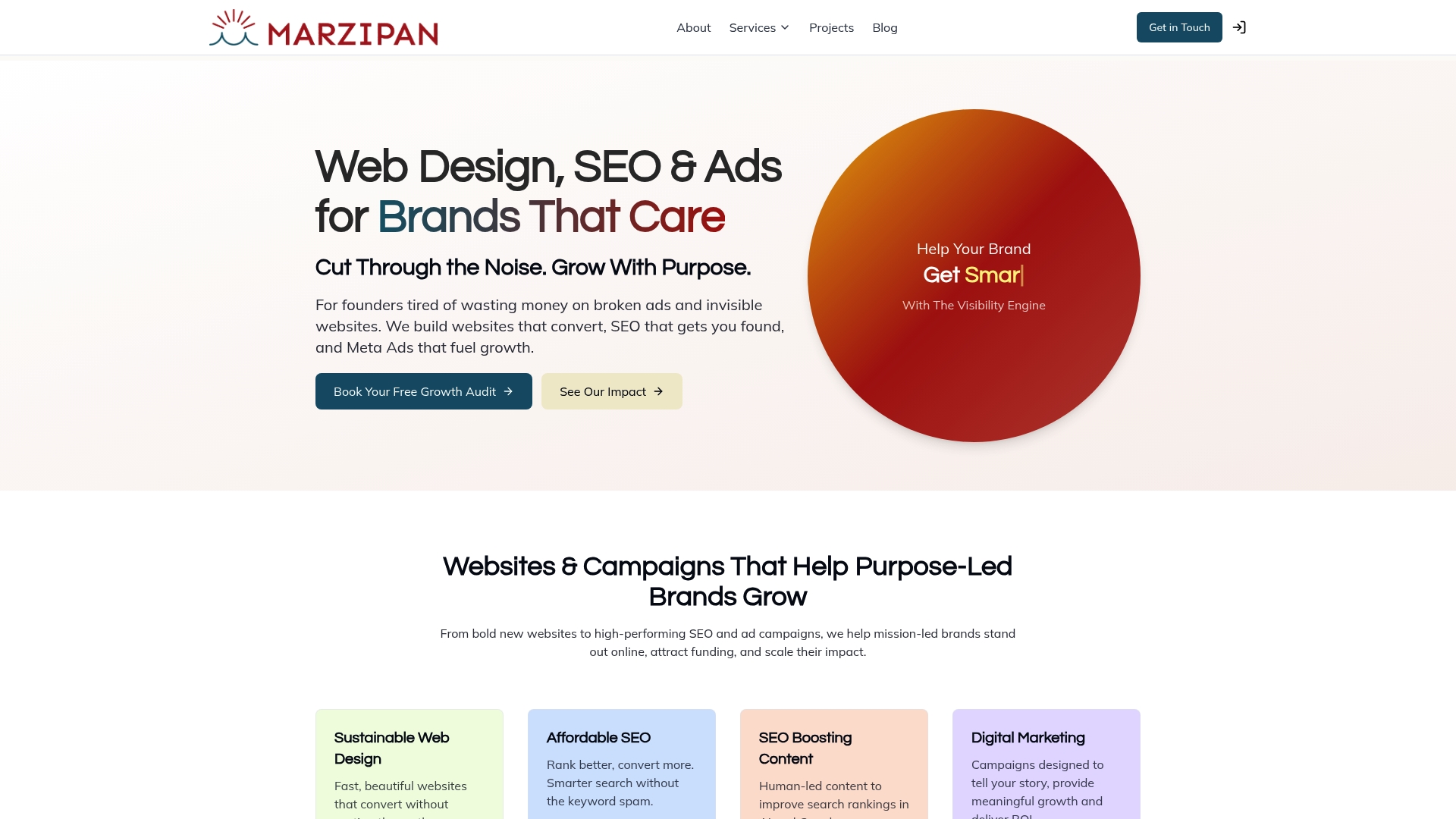Branded content often gets linked with clever marketing and modern buzzwords, but there is more to it than catchy slogans. While most people picture pushy adverts and obvious product placements, branded content stories are quietly shifting the entire marketing scene. The big surprise is how consumers are 83 percent more likely to engage with content that actually entertains or helps them and that opens up a world of subtle influence you might not have noticed yet.
Table of Contents
- Defining Branded Content: What Is It?
- The Importance Of Branded Content In Marketing
- How Branded Content Works: Mechanisms And Strategies
- Key Concepts And Elements Of Effective Branded Content
Quick Summary
| Takeaway | Explanation |
|---|---|
| Branded content prioritises storytelling and value | This approach focuses on creating engaging narratives that offer genuine value, rather than direct sales tactics. |
| Authenticity builds trust and connection | Providing sincere content that addresses audience needs fosters long-lasting relationships and credibility with consumers. |
| Engagement depends on understanding audience psychology | Crafting content that resonates with specific audience segments is crucial for creating effective branded experiences. |
| Multimedia formats enhance audience interaction | Leveraging varied formats like videos and podcasts can significantly increase engagement and help convey brand narratives effectively. |
| Emotional storytelling creates deeper connections | Narratives that evoke emotions allow audiences to relate personally, elevating their engagement and loyalty to the brand. |
Defining Branded Content: What Is It?
Branded content represents a strategic marketing approach where businesses create compelling, valuable content designed to engage audiences while subtly promoting their brand identity. Unlike traditional advertising, this method focuses on storytelling and providing genuine value to consumers through informative or entertaining material.
The Core Essence of Branded Content
At its fundamental level, branded content transcends direct product promotion. It aims to establish meaningful connections with audiences by delivering content that resonates with their interests, challenges, and aspirations. The primary objective is not immediate sales, but rather building brand awareness, credibility, and long-term audience relationships.
According to Content Marketing Institute, branded content should:
- Provide authentic and valuable information
- Align with brand values and messaging
- Create emotional engagement with target audiences
Differentiating Branded Content from Traditional Advertising
Traditional advertising interrupts consumer experiences with direct sales messages, whereas branded content integrates seamlessly into audience consumption patterns. This approach prioritises storytelling and value creation over explicit product promotion.
 Brands craft narratives that educate, entertain, or inspire, naturally embedding their identity within compelling content.
Brands craft narratives that educate, entertain, or inspire, naturally embedding their identity within compelling content.
For example, a fitness equipment company might produce workout tutorial videos or nutrition guides that showcase expertise without overtly pushing product sales.
To clarify the distinctions described, the table below compares branded content and traditional advertising across key characteristics outlined in the article.
| Feature | Branded Content | Traditional Advertising |
|---|---|---|
| Core Focus | Storytelling and value creation | Direct sales and product promotion |
| Communication Style | Informative, entertaining, or inspirational | Promotional, overt, and sales-driven |
| Audience Engagement | Voluntary and sustained engagement | Often interruptive and short-lived |
| Integration with Media Consumption Habits | Seamlessly blends into audience experiences | Frequently interrupts content or experiences |
| Brand Message Delivery | Subtle and implicit | Explicit and direct |
| Emotional Resonance | Builds emotional connections and trust | Rarely establishes deeper emotional links |
| Example | Workout tutorial videos, nutrition guides | TV commercials, banner ads |
By understanding what branded content truly represents, businesses can develop more sophisticated, audience-centric marketing strategies that foster genuine connections and long-term brand loyalty.
The Importance of Branded Content in Marketing
Branded content has emerged as a transformative strategy in modern marketing, offering businesses a powerful method to connect with audiences beyond traditional advertising paradigms. By prioritising meaningful engagement, brands can create deeper, more authentic relationships with their target consumers.
Building Trust and Credibility
Trust represents the cornerstone of successful marketing relationships. Branded content enables organisations to demonstrate expertise, transparency, and genuine value without resorting to aggressive sales tactics. Research from Nielsen indicates that consumers are 83% more likely to engage with content that provides practical information or entertainment value.
Key advantages of branded content include:
- Establishing thought leadership in industry sectors
- Creating emotional connections with target audiences
- Differentiating brand identity from competitors
Strategic Communication Beyond Traditional Advertising
Traditional marketing approaches often interrupt consumer experiences, whereas branded content seamlessly integrates informative or entertaining narratives. This approach allows businesses to showcase their values, knowledge, and unique perspectives. Learn more about brand storytelling strategies that can transform how companies communicate with their audiences.
By crafting content that resonates with audience interests and needs, brands can establish themselves as trusted resources. A technology company producing detailed cybersecurity guides or a fitness brand creating comprehensive wellness content exemplifies how organisations can provide genuine value while subtly reinforcing their brand identity.
Branded content represents more than a marketing tactic it is a sophisticated approach to building lasting audience relationships through meaningful, value-driven communication.

How Branded Content Works: Mechanisms and Strategies
Branded content operates through sophisticated mechanisms that transform traditional marketing approaches into nuanced, audience-centric communication strategies. By understanding its core principles, businesses can create compelling narratives that resonate deeply with target audiences.
Content Design and Strategic Positioning
Successful branded content hinges on understanding audience psychology and interests. Brands meticulously craft content that provides genuine value, moving beyond direct product promotion. According to research on content strategies, the primary objective is to create voluntary engagement through compelling storytelling.
Key strategic mechanisms include:
- Identifying precise audience segments and their informational needs
- Creating narratives that align with brand values
- Developing content across multiple platforms and formats
Multimedia and Platform-Specific Approaches
Effective branded content leverages diverse multimedia formats to maximise audience engagement. Explore our digital content creation services to understand how different media channels can amplify brand messaging. Video tutorials, interactive infographics, podcasts, and long-form articles represent versatile vehicles for communicating brand narratives.
The strategic implementation involves careful selection of platforms that match target audience consumption habits. A technology brand might produce in-depth YouTube tutorials, while a fashion company could develop visually striking Instagram stories that communicate brand identity without explicit sales messaging.
By integrating storytelling, valuable information, and subtle brand positioning, organisations transform marketing from interruption-based tactics to genuine audience value creation.
Key Concepts and Elements of Effective Branded Content
Branded content represents a sophisticated communication strategy that requires careful planning and nuanced execution. Success depends on understanding and implementing core elements that transform marketing from transactional interactions to meaningful audience connections.
Authenticity and Value Proposition
Authenticity serves as the foundational pillar of successful branded content. Audiences today are discerning and quickly recognise content designed purely for self-promotion. Research from Content Marketing Institute reveals that 71% of consumers prefer content that feels genuine and provides tangible value.
Critical elements of authentic branded content include:
- Demonstrating transparent brand values
- Addressing genuine audience challenges
- Maintaining consistent narrative tone
Storytelling and Emotional Resonance
Effective branded content transcends information delivery by creating emotional connections. Understand more about powerful brand storytelling techniques that transform marketing narratives. Compelling stories invite audiences to see themselves within the brand’s journey, moving beyond transactional relationships to meaningful engagement.
Brands must craft narratives that are simultaneously personal and universal. A sustainability-focused company might share individual stories of environmental impact, connecting global challenges with human experiences. By humanising complex concepts, organisations create content that educates, inspires, and subtly reinforces brand identity.
The table below outlines the fundamental elements of effective branded content, helping clarify the primary factors for success as discussed in the article.
| Element | Description |
|---|---|
| Authenticity | Content must feel genuine, reflect true brand values, and avoid overt self-promotion |
| Value Proposition | Offers practical, informative, or entertaining content that addresses real audience needs |
| Consistent Narrative | Maintains a coherent and reliable tone aligned with brand messaging |
| Storytelling | Uses engaging narratives to build emotional connections and foster audience identification |
| Emotional Resonance | Inspires trust and loyalty by eliciting emotions that link the audience to the brand story |
Understanding these key concepts transforms branded content from mere marketing tactic to a sophisticated communication strategy that builds genuine audience relationships.
Bring Your Branded Content to Life with Purpose
Are you struggling to create branded content that truly connects and delivers lasting value? Many businesses face the pain of being lost in the noise, unable to cut through with authenticity, emotional resonance, and trust-building storytelling. The solution is not just more content, but the right kind of branded content—purpose-driven, sustainable, and deeply engaging.

Let Marzipan help you turn these concepts into reality. We specialise in building sustainable websites and crafting digital strategies that make your content shine. With our digital content creation expertise, your brand can transform authentic stories into meaningful relationships. Visit Marzipan now and unlock content strategies that move your audience. Your next level of brand impact starts here.
Frequently Asked Questions
What is branded content?
Branded content is a strategic marketing approach where businesses create valuable and engaging content aimed at connecting with audiences while subtly promoting their brand identity. It emphasises storytelling and providing genuine value over direct product promotion.
How does branded content differ from traditional advertising?
Branded content differs from traditional advertising in that it focuses on creating meaningful narratives that educate, entertain, or inspire rather than interrupting consumer experiences with direct sales pitches.
What are the key benefits of using branded content in marketing?
The key benefits of branded content include building trust and credibility with audiences, establishing thought leadership, creating emotional connections, and differentiating a brand’s identity from competitors.
How can businesses create effective branded content?
To create effective branded content, businesses should understand their target audience’s interests, develop narratives that align with their brand values, and utilise various multimedia formats across appropriate platforms for maximum engagement.
